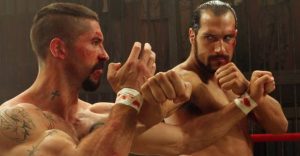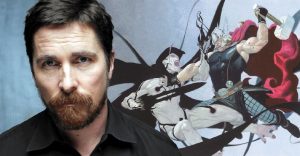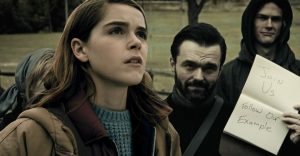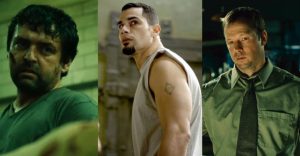Stephen King: Dr. Sleep’s Adaptation Made The Novel (& The Shining) Darker

Mike Flanagan’s Doctor Sleep may have flopped at the box office, and the fact the adaptation elided a lot of The Shining’s original hopeful moments could be why. Released in 1980, A Clockwork Orange director Stanley Kubrick’s The Shining was a rare foray into horror for the famous helmer. Blackly comic, chilly, and infamously full of strange, hard-to-decipher imagery, Kubrick’s adaptation of The Shining split critics upon its initial release but soon became legendary and is now regarded as one of the finest horror films ever crafted.
However, one notable dissenter wasn’t as fond of The Shining as film critics or horror fans. Stephen King, who authored the original novel of the same name that The Shining was based on, didn’t appreciate the fact Kubrick took huge liberties in adapting his story to the screen. Kubrick’s adaptation altered King’s critically-acclaimed novel in numerous key areas, ranging from tone and pacing to the movie’s famously divisive ending.
In 2019, Kubrick’s adaptation of The Shining received a belated sequel in the form of Mike Flanagan’s Doctor Sleep. This movie, from the cult horror helmer responsible for everything from Netflix hit The Haunting of Bly Manor to the earlier King adaptation Gerald’s Game, left critics divided over its attempts to follow up Kubrick’s film while also adapting King’s 2014 novel, Doctor Sleep. However, audiences were less uncertain, with Doctor Sleep becoming a flop and the first major financial misstep of Flanagan’s career. While Flanagan’s film makes an admirable stab at following up both Kubrick’s movie and King’s novel, the biggest issues that Doctor Sleep fails to fix come from the tonal disconnect between the duo’s divergent visions for The Shining.
How Kubrick’s Movie Changed Stephen King’s The Shining

Kubrick’s film famously altered the tone of The Shining, removing a lot of the more overt supernatural elements and making Jack Nicholson’s Jack Torrance a more obviously deranged, unstable man prior to his stay at the Overlook. Where the novel (and later King-penned 90s miniseries version) cast Jack as a reasonable everyman whose crippling alcoholism eventually overwhelms his ability to function as a parent and husband, the Kubrick movie casts a leery, wild-eyed Nicholson and signposts from the first scene this man is ready to lose his mind at the first sign of inconvenience. It’s a massive, instrumental change that makes Kubrick’s version of The Shining the cold, tense story of Danny attempting to escape his father’s breakdown, where the novel focuses on Jack’s troubled psyche and his tragically doomed attempts to overcome addiction and instability.
Kubrick Rewrote The Shining’s Ending

However, the biggest change Kubrick made to The Shining came at the close of his adaptation. Originally, Kubrick diverged even further from King’s source novel with a finale that saw Dick Halloran survive the events of the movie – only for viewers to discover he too was possessed by the Overlook and thus Wendy and Danny had to battle him too. Fortunately, Kubrick cut this dark coda, but the ending he went with for The Shining was still one which jettisoned Jack’s redemption arc, a heartbreaking detail that many (King included) thought was pivota. In Kubrick’s The Shining, Jack is left to freeze to death as revealed in the blackly funny closing moments. In contrast, the novel sees Jack free himself from the Overlook’s influence just long enough to blow up the boiler, sacrificing his life to save his family and destroy the hotel. While he may be unable to overcome his demons in life, he can save himself from destroying his family and can take his addiction down with him, whereas in the Full Metal Jacket director’s characteristically dark movie, his death is a cruel punchline.
Doctor Sleep Is A Shining Sequel And A Stephen King Adaptation

Flanagan’s film was always going to be stuck serving two masters as Doctor Sleep adapts the sequel novel to The Shining while also serving as a sequel to Kubrick’s adaptation. As a result, what was the destroyed remnants of the Overlook from the novel’s climax becomes the still-intact Overlook in the Doctor Sleep finale, while Ewan McGregor’s conflicted Danny ends up pulling off Jack’s The Shining sacrifice a few decades late. Rather than stick with the novel’s ending, wherein the ghost of Jack further redeems himself long after his death by helping Abra defeat Rose the Hat, the Haunting of Bly Manor writer’s film depicts Jack’s spirit as another of the Overlook’s many monsters, attempting to drag Danny down and they eventually succeed in possessing him in the film’s ending.
Why Doctor Sleep’s Movie Ending Ruins Stephen King’s The Shining

The problem with this new ending is it leaves Doctor Sleep stranded between the novel and Kubrick’s movie. While King’s Doctor Sleep’s ending was reasonably criticized for being too sweet (the True Knot are defeated without any major casualties on the side of the heroes), the movie adaptation’s addition of pathos doesn’t work when it’s a follow-up to a film that famously discouraged audiences from caring about or identifying with Jack’s plight. Kubrick’s The Shining doesn’t care about Jack’s soul or his humanity and invites the audience to see him as a man doomed since before he entered the hotel. King’s novel is ultimately about Jack’s redemption and his ability to become a good father in death, if not in life, by overcoming his addiction and doing the right thing.
Doctor Sleep‘s movie adaptation, as a result, tries to give Danny (who hasn’t been a bad father or hasn’t had much of an in-film character arc) Jack’s redemptive death, but with less to redeem, this choice falls flat. Flanagan, unlike Kubrick, is at his best when working with poignant, emotionally resonant stories. Where Kubrick’s movie dares the audience to hate its un-relatable protagonist, Flanagan’s Doctor Sleep wants to humanize its flawed hero. The problem is that Danny Torrance is humanized while his father remains, like many Stephen King adaptation antagonists, a cartoony villain, resulting in an ending for Doctor Sleep’s adaptation that lacks both Kubrick’s darkly funny bleakness or King’s moving redemption for The Shining’s deeply flawed, but ultimately human, protagonist.
About The Author


















